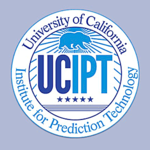Open Innovation Solutions to Combat Opioid Addiction
Published Apr-07-19Breakthrough:
Four innovations to tackle the opioid addiction crisis.
Company:
The University of California’s Institute for Prediction Technology, United States
The Story:
 Opioid addiction is a serious public health problem in many countries. It is a chronic and long-lasting disease that can cause major health, social and economic problems. Opioids are a class of drugs that include powerful pain-reducing medications and the illegal drug heroin. Currently, 21 to 29 percent of patients prescribed opioids for chronic pain misuse them.
Opioid addiction is a serious public health problem in many countries. It is a chronic and long-lasting disease that can cause major health, social and economic problems. Opioids are a class of drugs that include powerful pain-reducing medications and the illegal drug heroin. Currently, 21 to 29 percent of patients prescribed opioids for chronic pain misuse them."We know this is a brain disease," said National Institutes of Health director Francis Collins in an interview with USA Today. "Any idea that this is just willpower and you ought to be able to get over it is completely contrary to what we know on the basis of the strongest medical evidence."
Opioid Hackathon
To help come up with solutions to the opioid crisis and break the cycle of addiction, the University of California’s Institute for Prediction Technology (UCIPT) organized its first-ever Opioid Hackathon, in 2018. The two-day open innovation event kicked off with a symposium followed by a 24-hour hackathon involving teams of computer and data scientists, public health officials and other interested parties.
“The Opioid Hackathon was a test to see whether we can bring together individuals from multiple disciplines– most with no prior opioid-related knowledge– to work together to rapidly design and develop implementable solutions to the opioid crisis,” said Sean Young, Associate Professor of Family Medicine at UCLA and Founding Director of UCIPT.
Teams had to come up with solutions across four opioid crisis-related tracks:
• Infrastructure/application interface for ethical/secure sharing of opioid-related data
among key stakeholders.
• Designing personalized behavior change apps that can be applied by patients, their
families, and/or providers/health systems for long-term reductions in overdose-
related risk behaviors.
• Real-time/prediction models and visualization tools to prevent addiction and
overdose.
• Real-time/prediction models and visualization tools showing new integrative
therapeutic benefits and approaches to prevent addiction and overdose.
Winning Solutions
During the 24-hour hackathon, 20 potential solutions were submitted and judged on their creativity, feasibility and potential impact. Four winning teams were announced and each one picked up a check for $5,000.
The winner of track one was iPill -an application that regulates opioid dispensing for a patient while offering alternatives to taking the opioid pill.
The winner of track two was Recovery, which incorporates clinical trial data to improve treatment methods.
The winner of track three used applications of machine learning to predict opioid overdose deaths in California.
The winner of track four used open source used data analysis to predict opioid overdose and help reduce opioid usage.
Implementation of Winning Concepts
The hackathon was not just an idea-generating event, its principal purpose was the implementation of new ways forward. One of the criticisms that is leveled at hackathons is that winning teams dissipate soon afterward and there is no follow through. However, with the Opioid Hackathon, winning teams are incentivized for implementation and the contest’s sponsors are working with the winners to realize their solutions in public health settings. They will also be studied for one year after the event through interviews and surveys.
Next Story »

